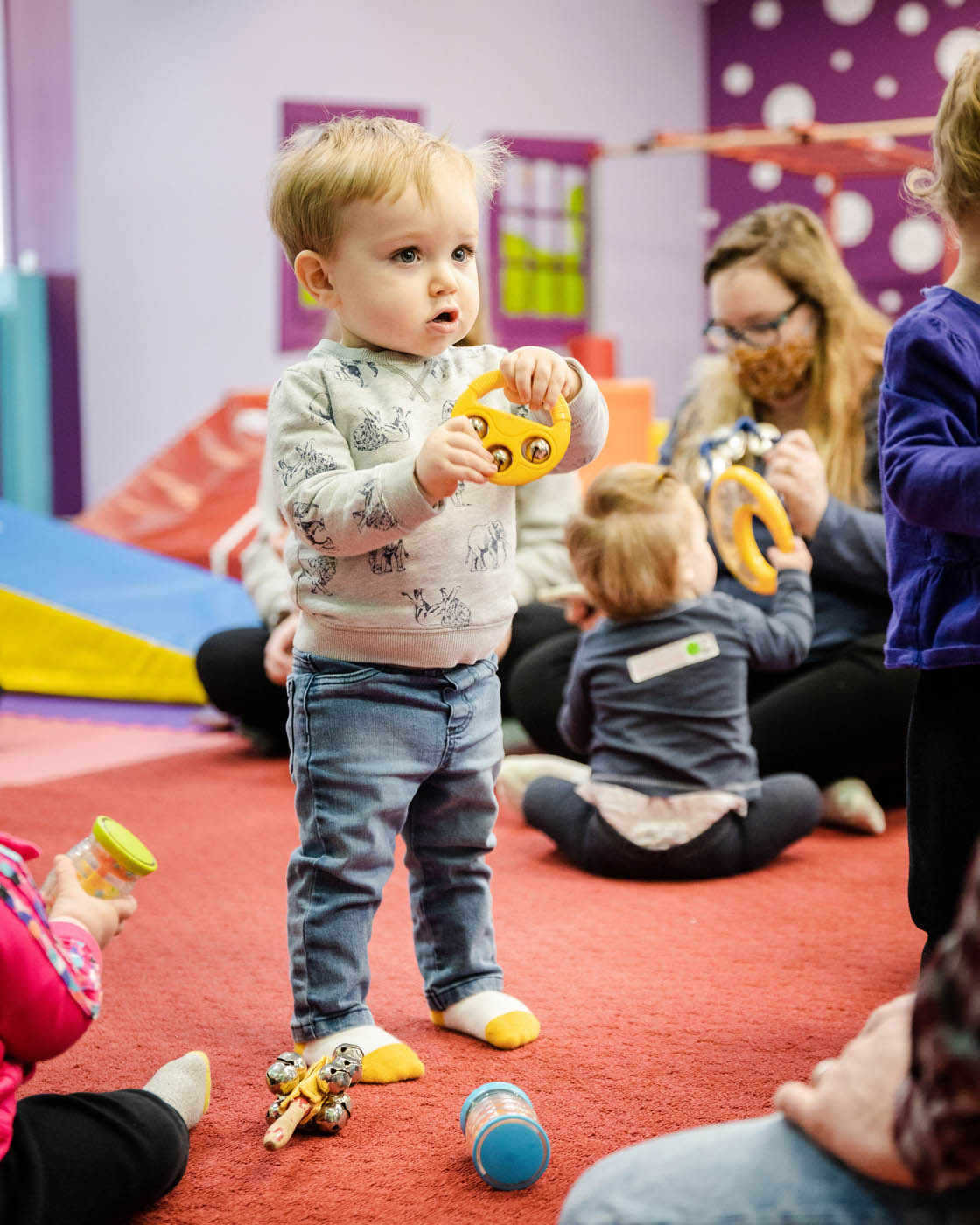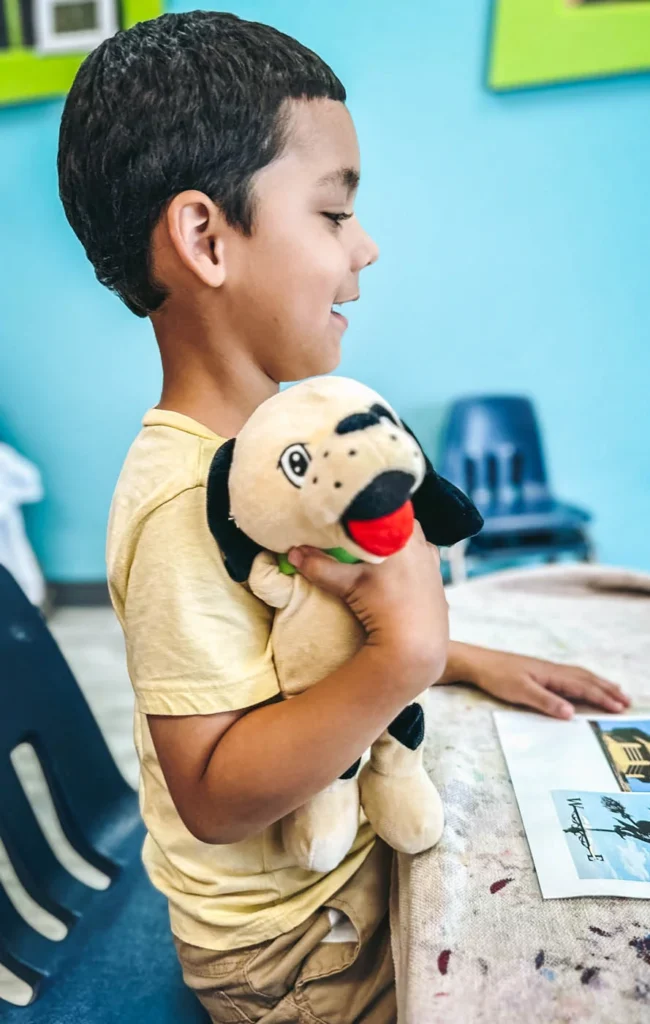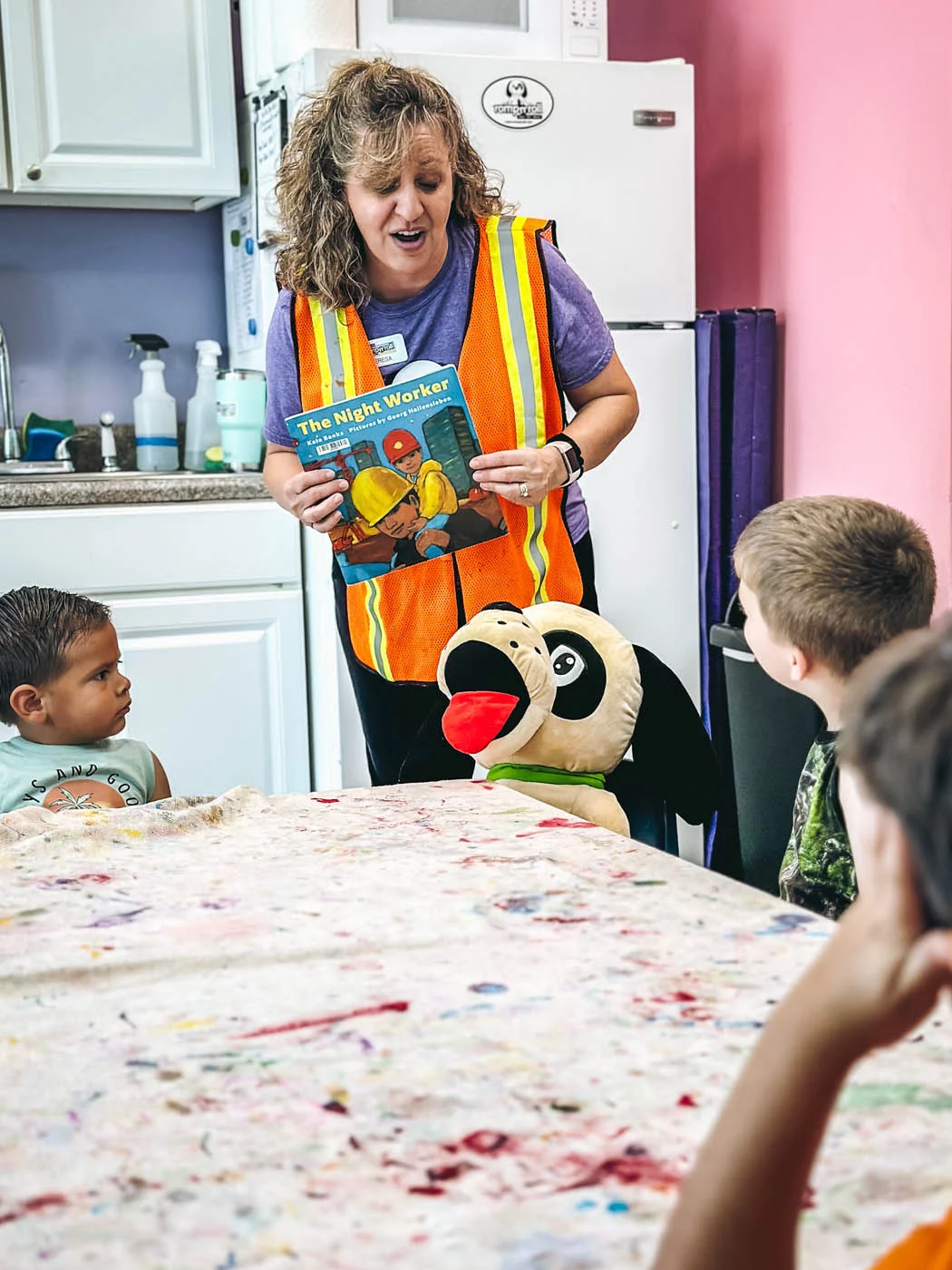No matter the time of year, it’s important to continue nurturing your preschoolers or kindergartners’ educational growth and development. They’re constantly absorbing new information, and what better way to fuel their enthusiasm and curiosity than with engaging activities right at home?
Explore these at-home activities that offer a fun way to support your little one’s learning journey and how you can find support at Romp n’ Roll. From crafting to counting, reading to role-playing, endless ways exist to prepare them for the exciting path ahead.
Independence is a cornerstone for children. By engaging in activities that foster autonomy, children learn to navigate challenges, make decisions, and solve problems on their own. Here’s how you can support your child’s journey towards independence:
Developing Independence
- Encourage your child to dress themselves and practice self-care routines like brushing their teeth and washing their hands.
- Allow them to make simple daily choices, such as picking out their clothes or selecting a snack.
- Provide opportunities for them to complete small tasks, like putting away toys or setting the table.
Boosting Motor Skills
Motor skills are important for tasks such as writing, using classroom tools, and other precise movements. Boosting motor skills allows for children to explore and interact with their environment as they grow and develop. Consider doing these fun activities at home to grow your child’s motor abilities:
- Arts and crafts activities include coloring, cutting, and gluing.
- Using child-safe scissors to cut out shapes or pictures from magazines.
- Play with playdough or clay for your child to squeeze, roll, and shape.
Building Social Skills
Social skills are an essential tool for young ones to develop. It allows for a positive classroom experience and helps children develop friendships with their peers. To foster social growth at home, consider:
- Arranging playdates with other children from their class or neighborhood.
- Practicing taking turns and sharing toys during playtime at home.
- Reading books on social skills and emotions. Discuss how characters interact and problem-solve.

Introducing Basic Academic Concepts in a Fun Way
Academic readiness can significantly enhance the school experience for preschoolers and kindergartners. By using basic learning concepts in playful activities, kids can develop a joy for lifelong learning early on. Tackle this important skill at home by:
- Reading books together and highlighting letters, numbers, shapes, and colors.
- Playing games that involve counting, sorting, and matching objects.
- Use everyday experiences to introduce vocabulary, such as identifying items at the grocery store or naming different types of animals at the zoo.
Establishing a Supportive Routine
Establishing a supportive routine helps children adapt to learning environments and can help develop healthy habits in the future. Routine can be used at home in the following ways:
- Set regular bed and wake-up times to ensure your child gets enough rest for their school day.
- Establish a morning routine, including getting dressed, eating breakfast, and packing their backpack.
- Designate a specific area for homework or quiet reading time, creating a dedicated space for learning and focus.
Romp n’ Roll
Where Discovery Meets Fun!
At Romp n’ Roll, we’re committed to being there for you and your child throughout the year. Our classes and playful activities prepare children for academic settings while supporting their developmental journey.
Romp n’ Roll classes provide:
- Engaging activities that build fine motor skills, coordination, and control.
- Opportunities for social interaction and peer collaboration.
- Age-appropriate academic concepts are introduced through play and exploration.
- Expert instructors who create a nurturing and supportive environment.
- A foundation of confidence and independence for school and beyond!
Explore our programs to find the perfect fit for your child’s needs and interests. Together, we can make every day a stepping stone to new discoveries and joyful learning!
Remember, every child’s development is unique. For personalized advice, consult with your child’s pediatrician or educator.

